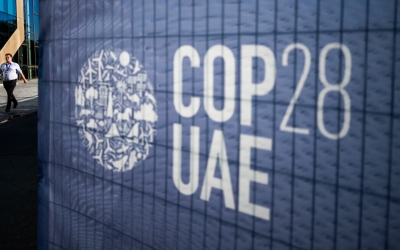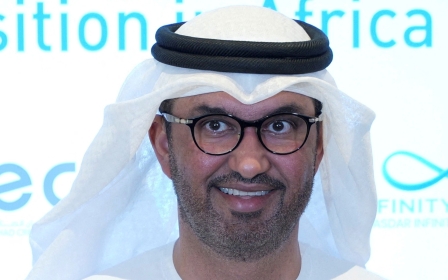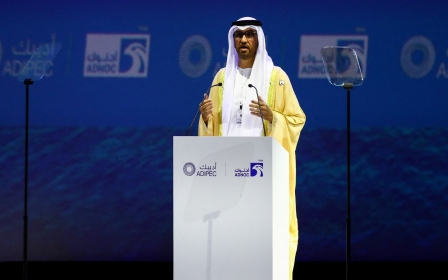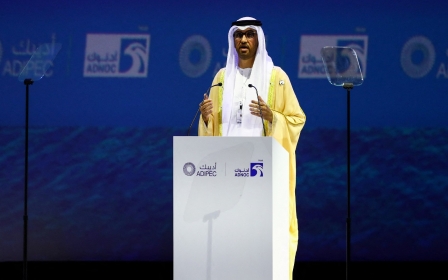Cop28: Host UAE emission reduction plan 'falls short', says UN chief Guterres
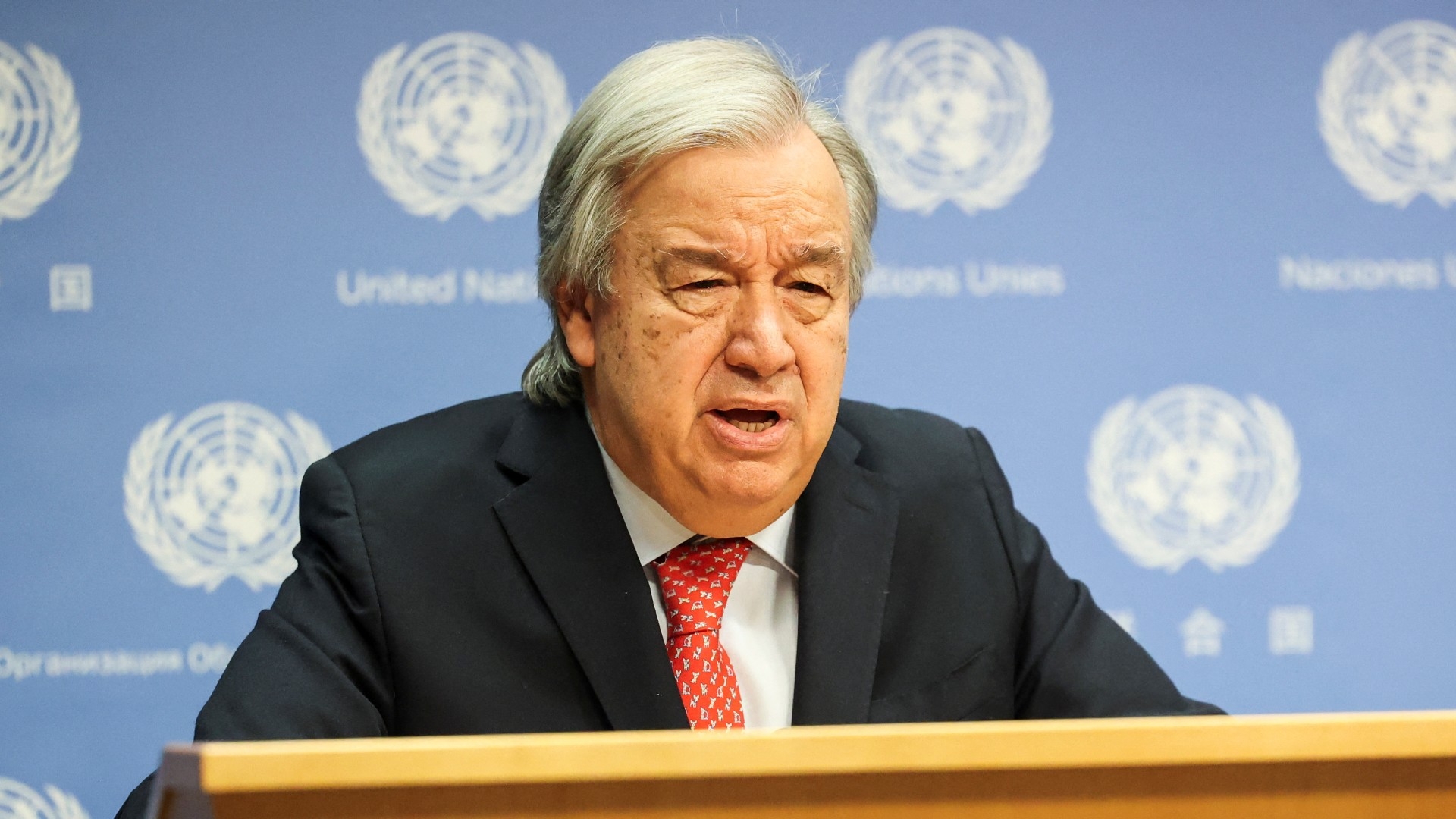
UN Secretary General Antonio Guterres has criticised an emission reduction pact announced by Cop28 president and oil chief, Sultan al-Jaber for “falling short of what is required".
The raft of pledges, brokered by Jaber with 50 of the world’s biggest fossil fuel companies to reduce their emissions to net zero by 2050, was unveiled by the UAE and Saudi Arabia at the UN climate summit in Dubai on Saturday.
Those agreements are part of a new decarbonisation alliance that includes ExxonMobil, TotalEnergies, BP and Shell, and state energy companies, Saudi Aramco and Abu Dhabi National Oil Company (ADNOC).
But less than 24 hours after the launch, the package of pledges came under fire by the UN chief for failing to include emissions from fossil fuel consumption, which account for the majority of emissions produced by the industry.
None of the companies have agreed to cut production.
New MEE newsletter: Jerusalem Dispatch
Sign up to get the latest insights and analysis on Israel-Palestine, alongside Turkey Unpacked and other MEE newsletters
The pledges account for only 15 percent of global emissions and are inconsistent with limiting the rise in global temperatures to 1.5C.
“Science is clear: we need to phase out fossil fuels within a time frame compatible with limiting global warming to 1.5 Celsius,” Guterres said on Sunday. “In addition, [the] announcement provided no clarity on the pathway to reaching net zero by 2050, which is absolutely essential to ensure integrity. There must be no room for greenwashing.”
Clear science
The agreements include plans to scale up renewable energy capacity, however Guterres said that the proposals “lack a comprehensive strategy to tackle our reliance on fossil fuels”.
Jaber had also recently come under fire for claiming that there is “no science” behind the International Energy Agency’s statement that a phase out of fossil fuels is required to limit the rise in global temperatures to 1.5C.
But on Monday, Jaber denied the statement and said that “43 percent of global emissions must be reduced by 2030” to “keep 1.5 within reach."
Al-Jaber’s appointment as Cop28 president has already drawn fierce criticism from environmentalists who have highlighted his role as chief executive of ADNOC as a clear conflict of interest.
Ahead of the talks, leaked briefing documents revealed Abu Dhabi plans to seek oil and gas deals with 27 countries during the summit.
On Saturday, Colombia’s President Gustavo Petro announced that it would become the 10th country to join a coalition of nations calling for a fossil fuel non-proliferation treaty, an initiative to stop the expansion of fossil fuel exploitation and manage a just transition away from coal, oil and gas to clean energy.
Middle East Eye delivers independent and unrivalled coverage and analysis of the Middle East, North Africa and beyond. To learn more about republishing this content and the associated fees, please fill out this form. More about MEE can be found here.


